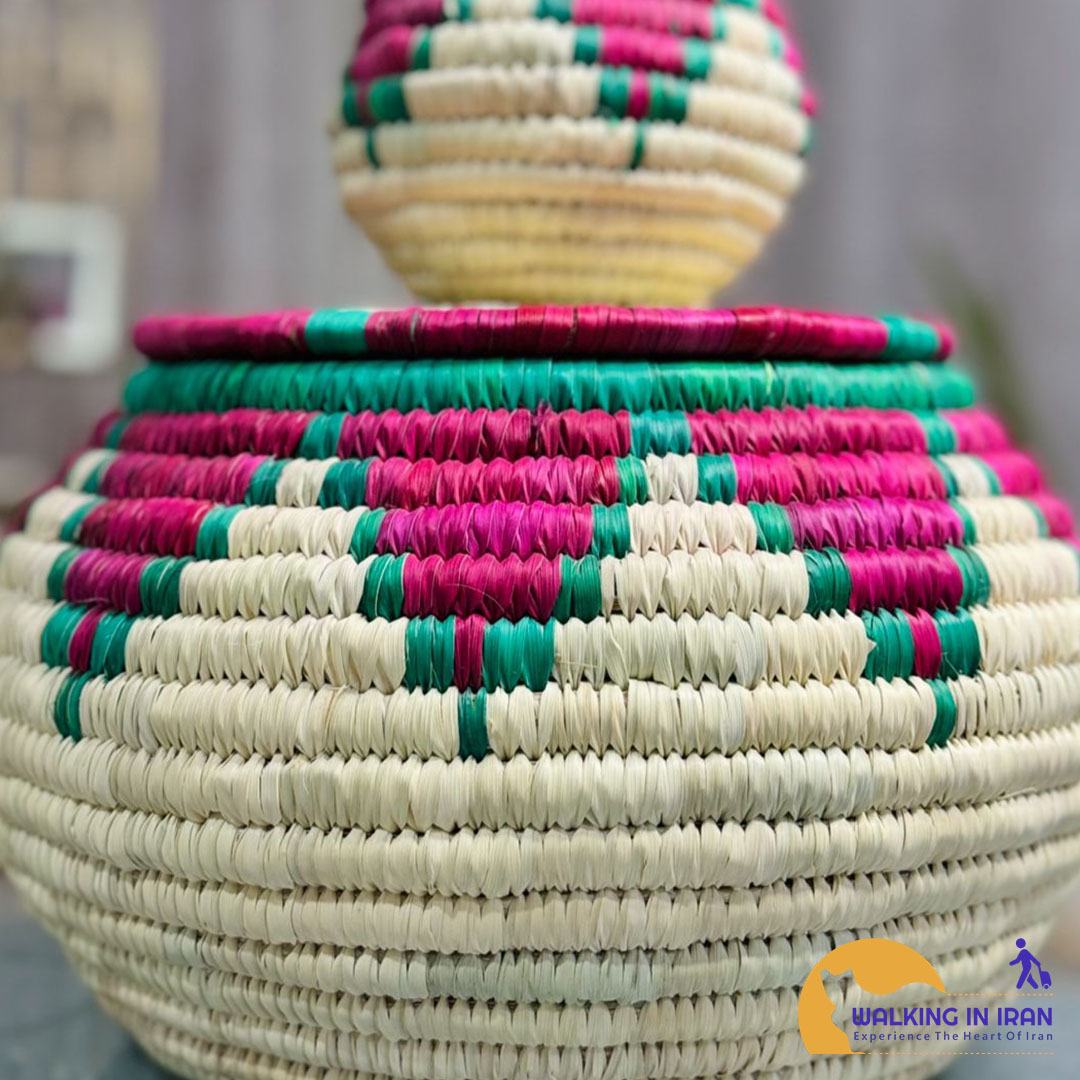The art of kabobafi; A legacy of the groves of Khuzestan
Kapubafi is one of the most valuable handicrafts of Iran, which is rooted in the rich history and culture of Khuzestan province. This beautiful and practical art creates amazing works using palm leaves. In addition to many uses, kapohs are also a symbol of the identity and culture of the people of Khuzestan.
History of Kapubafi
The art of capobufi has a long history and goes back to ancient times. In the past, the people of Khuzestan used the many leaves of palm trees to make various wicker products, including kapo. Kepu’s played an important role in people’s daily life and were used to store food, carry water and other items.
Kapubafi raw materials
The most important raw material for making kapu is the palm leaf, which is called “pis”. After being separated from the palm branch, the pods are dried and then divided into thin strips. These strips are woven together using special methods and take various shapes.
The process of making capo
Making a capo includes several steps:
- Harvesting of palm trees: In the right season, the palm trees are harvested.
- Preparation of pres: the pres are dried and then divided into thin strips.
- Weaving: using simple tools such as fingers and comb, the front strips are woven together lengthwise and crosswise to take a spherical shape.
- Decoration: In some cases, kapohs are decorated with natural colors or other decorations.
Types of kapo
Capos are divided into different types in terms of shape, size and application. Some of the famous types of capo are: - Round capo: This type of capo is the most common type and is used to store food such as dates, rice and beans.
- Oval cup: Oval shaped cups are used to carry water.
- Jug capo: This type of capo has a narrower opening and is used to store liquids such as oil and vinegar.
Applications of capo
Capos have many uses, including: - Food storage: Cups are used to store all kinds of food such as dates, rice, beans and vegetables.
- Carrying water: In the past, oval-shaped cups were used to carry water.
- Handicrafts: Capo is used to make a variety of handicrafts such as bags, hats and key chains.
- Decoration: Decorative hoods are used as a beautiful element in interior decoration.


